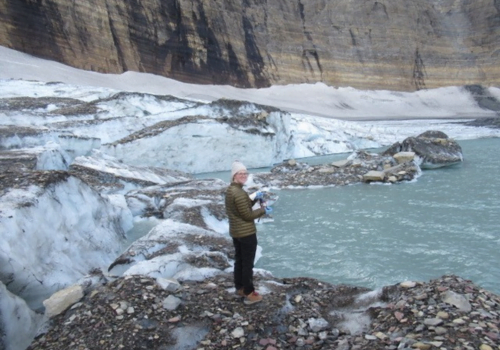
By Lauren McDonald lmcdonald@thebrunswicknews.com Dec. 27, 2021
An alumna of College of Coastal Georgia will soon embark on NASA-funded research focused on exploring how to detect extraterrestrial life through a DNA sequencing tool.
Madeline Garner graduated from CCGA in 2020 and took a gap year before enrolling at Montana State University as a graduate student. She’s now in the molecular biosciences program, through which she’s able to rotate between lab programs like physics, math, engineering, biology and chemistry.
“(Montana State University) is known for their below zero lab, which makes sense in Montana where there’s lots of snow,” Garner said. “They have some of the best analogs that I can get, at least in the U.S., for these icy world environments.”
The NASA funding was set to begin this year, but Garner later got word that she received a separate fellowship through her institution.
This summer she will work in NASA’s jet propulsion lab and will collaborate with other scientists on her research.

Her grant-funded work involves developing technology that researchers can send into space that is mission ready and learning more about how to detect biosignatures and determine if life exists in other parts of space similar to life on Earth.
“My work is to focus on those science questions, at least for my PhD studies,” Garner said. “The real focus will be trying to look at biosignatures, specifically in those icy world environments, and then learning how can this technology be an aid in detecting them and giving us as much information as we can about the life in these environments.”
Garner has been interested in these kinds of interdisciplinary studies since she was an undergraduate student at CCGA studying biology, chemistry and environmental science, among others.
“One of the things that draws me to the field the most is the fact that I don’t have to choose one type of science,” she said. “I’m getting to do that field work aspect that I loved so much about the environmental science program. I get to dabble in engineering for the first time, both electrical and mechanical, and that’s a really awesome opportunity.
“And then I get to stay close to my heart with the biochemistry route, so just getting to answer questions that are very universally human — Are we alone? — but in the field of study I’m passionate about.”
Garner said she’s excited to work with collaborators who have expertise in a variety of fields within astrobiology.
“It’s honestly a truly amazing opportunity that I’m super, super thankful about,” Garner said. “It’s an amazing opportunity for me not to have to worry about funding. That’s every graduate student’s hope not to have to worry about TA’ing or writing that next grant. Having that solidified funding for at least the next four years is amazing.”
Republished with the permission of The Brunswick News. Originally published in The Brunswick News.






